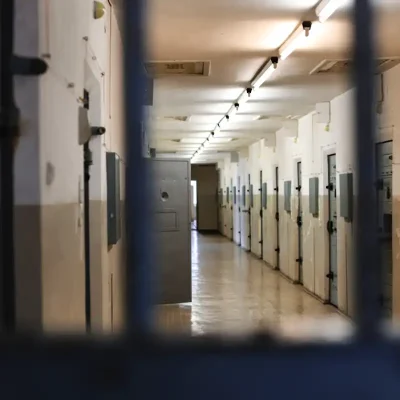Criminalization
Criminalization
Combatting the harms of criminalization
Women, trans people of all genders, Two-Spirit people, gender non-binary people, and gender non-conforming people face higher rates of criminalization and incarceration than ever before, especially where their gender identity and expression intersects with other markers of identity and experience. These populations are also disproportionately and distinctly impacted by engagement with the criminal justice system and related systems of detention, such as involuntary detention under mental health legislation, adult guardianship legislation, and detention of people without immigration status.

Indigenous women, girls, Two-Spirit people, trans people of all genders, gender non-binary and gender non-conforming people make up a vastly large number of those in the criminal legal system, far disproportionate to their numbers in the general population. This is particularly so where gender intersects with other markers of identity and experience. Data shows that Indigenous women and girls serve longer sentences under harsher conditions than other people in the carceral system, and they are being imprisoned at far higher rates than ever before.
West Coast LEAF’s work in this area aims to surface and address the disproportionate gendered impacts of detention and criminalization, particularly for Indigenous, Black and racialized people, people living with disabilities, people without legal status in Canada, and people with precarious employment and housing. Our work also looks at harm reduction and other strategies to support people at greater risk of criminalization, along with alternatives to detention and imprisonment that more meaningfully and effectively support individual well-being and community safety.
Through our work on criminalization and incarceration, we want to realize gender justice through the creation of vital and thriving communities, instead of through unjust and inequitable systems of punishment, risk assessment, and profiling.
Work in progress
Our work on the gendered dimensions of criminalization, imprisonment and detention is emergent, as we seek to better understand and advocate for all people who experience gender discrimination. We do this work through community collaboration, and by tracking and observing trends in the use of policing, immigration and mental health detention, the criminal legal system, and rates of imprisonment. We also work to reform laws that create and perpetuate unfair sentences, place unrealistic expectations for bail or conditional sentencing, authorize detention without adequate oversight and review, and individualize punishment for structural and systemic failings.
Women, trans people of all genders, Two-Spirit people, gender non-binary people, and gender non-conforming people are disproportionately harmed by engagement with the criminal justice system and related systems of detention. These harms take many forms. Inside jails, prisons, and detention facilities, for instance, there are higher incidences of mental health impairment and self-harm among people marginalized on the basis of their gender identity and expression, along with higher rates of placement in more secure, isolated or segregated settings.
Correctional facilities, assessment tools and programs are designed with cis men in mind. These facilities and their programs, such as employment training are often ill-suited or culturally inappropriate for the rehabilitative and healing needs of women, trans people, Two-Spirit people, gender non-binary people and gender non-conforming people. People facing these intersecting forms of marginalization are also far more likely to be harmed by family separation, especially when they are the primary caregivers to children and youth, or are in facilities far from their ancestral homelands which sever their connection to community and land.
Indigenous, Black and racialized women, trans people of all genders, Two-Spirit people, gender non-binary people and gender non-conforming people are at greater risk of police violence even when they may be the ones seeking protection. This leaves many to avoid law enforcement whenever possible as a way of keeping themselves safer.
Over-policing may occur when law enforcement treats survivors of intimate partner or family violence as equivalent perpetrators of “mutual violence”, or by treating people navigating family court orders that conflict with orders made in the course of a criminal proceeding as breaching conduct orders. For women without residency or citizenship status, this may mean remaining in abusive relationships to avoid heightened scrutiny of their “criminal” status under immigration and refugee law regimes. This is in addition to the state-sanctioned use of force against women, trans people of all genders, Two-Spirit people, gender non-binary people, and gender non-conforming people on the streets, in their homes, and while in detention.
Moreover, women, trans people of all genders, Two-Spirit people, gender non-binary people, and gender non-conforming people who are unhoused or precariously housed, who are sex workers, or who use substances are at heightened risk of being surveilled and profiled for having “high risk” lifestyles, resulting in a greater likelihood of their engagement with the criminal legal system. Any level of engagement with the criminal legal system can have serious consequences for security and well-being, even if charges are never laid.
Take action for justice and equity!

